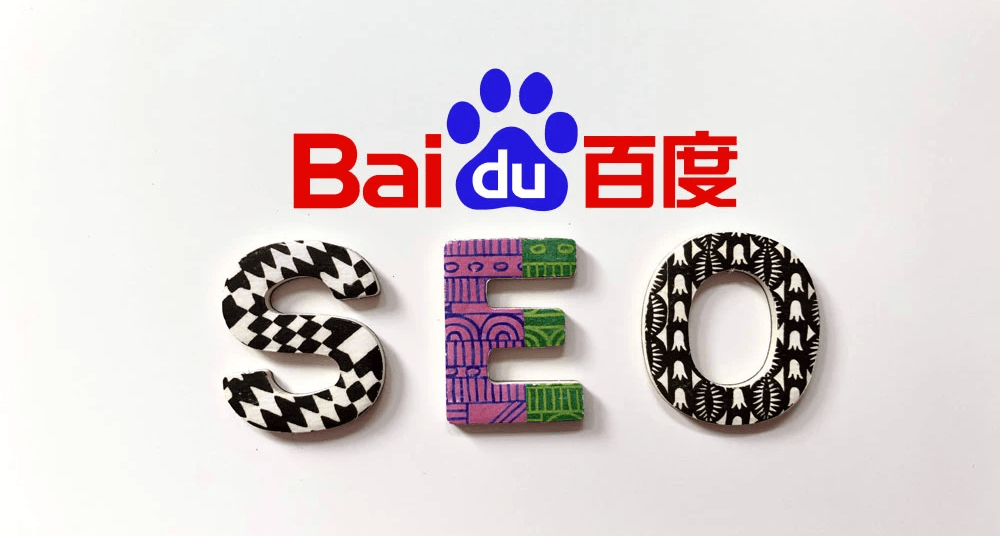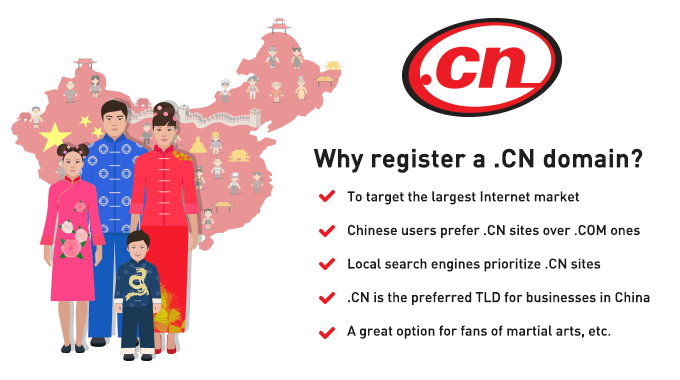Welcome to the Search Engine That Doesn't Care About Your Google Expertise
In 2025, Baidu isn't just China's Google—it's the digital gatekeeper to 1.4 billion potential customers who have never heard of your brand and might not care unless you play by entirely different SEO rules. While you were perfecting your Google dance moves, Baidu developed its own algorithmic tango that leaves most Western marketers stumbling around like drunk tourists in Shanghai.
With 724 million monthly active users (approximately twice the population of the United States, all searching for things you might sell), Baidu commands a 76% market share in a digital ecosystem where Google is but a distant memory mentioned by old-timers who reminisce about the internet before the Great Firewall.

The Numbers That Will Make Your Western SEO Expert Cry Into Their Analytics Dashboard
Before we dive into how to please the Baidu algorithm gods, let's examine some statistics that explain why you can't just Google Translate your existing SEO strategy and call it a day:
- Monthly Active Users: 724 million people searching for things while you're sleeping
- Market Share: 76% of China's search market (making it more dominant than Google is in most countries)
- Daily Search Queries: 5.4 billion (approximately 62,500 searches per second)
- Mobile Search Penetration: 92% (because apparently desktop computers are now considered antiques in China)
- Average User Session Duration: 45 minutes (longer than most Western marriage proposals)
The 10 Commandments of Not Being Digitally Invisible in China
1. Simplified Chinese Content: Because Google Translate Will Absolutely Betray You
Linguistic Nightmares and How to Avoid Them:
Using machine translation for your Chinese website is like trying to perform surgery after watching a 5-minute YouTube tutorial—technically possible but likely to end in disaster.
What You Actually Need to Do:
- Create 100% Simplified Chinese content (Traditional Chinese is for Taiwan and Hong Kong, and mixing them up is like serving hamburgers at a vegan conference)
- Hire native language professionals who understand both your industry AND current Chinese linguistic trends
- Adapt cultural context so you don't accidentally compare your executive team to hungry ghosts
- Integrate local idioms and expressions (but only if you actually understand them, otherwise you might accidentally tell potential customers that your product reminds you of their mother's unfortunate facial hair)
The Technical Stuff That Will Make Your Developer Question Their Career Choices:
- Implement UTF-8 encoding (get this wrong and your beautiful Chinese characters will render as digital hieroglyphics)
- Ensure proper Chinese character formatting that doesn't break when someone views it on a device made after 2010
- Conduct dialect-sensitive keyword research (because "普通话" Mandarin isn't the only game in town)
- Prioritize semantic relevance (because literal translations can transform your sophisticated product descriptions into unintentional comedy)

2. Localized .CN Domain: Or Why Baidu Trusts Chinese Digital Real Estate More Than Foreign Imports
The Digital Geography Lesson:
To Baidu, a website without a .CN domain is like a restaurant located in another country—it might be amazing, but no one's going to travel that far for dinner.
Domain Strategy That Won't Make Baidu Suspicious:
- Prioritize .CN domain extensions (yes, this means another domain purchase, sorry about your budget)
- Set up local hosting in Mainland China (not Hong Kong, not Singapore, not "close enough")
- Obtain an ICP license (a bureaucratic adventure that makes getting a driver's license seem like ordering fast food)
- Establish Chinese server infrastructure (because data that has to leap the Great Firewall loads slower than a camel carrying gold bricks)
Trust Signals That Matter More Than Your International Awards:
- Government-approved hosting (because nothing says "trustworthy" like official endorsement)
- Local business registration that proves you're not just digitally visiting
- Verified contact information including a Chinese phone number that someone actually answers
- Transparent legal documentation (which, yes, needs to be in Chinese and compliant with laws that change faster than Beijing weather)

3. Mobile Optimization: Because Desktop Computers Are Museum Exhibits in China's Digital Landscape
The Mobile Imperative:
In China, assuming users will access your site on desktop is like expecting people to send messages by carrier pigeon—theoretically possible but not how anyone actually behaves.
What "Mobile-First" Actually Means in the Land of Super Apps:
- 100% responsiveness that makes your site look intentionally designed for screens smaller than a passport
- AMP compatibility that doesn't make users wait longer than their instant noodles take to cook
- Loading speeds under 2 seconds (because 3 seconds in Chinese internet time is roughly equivalent to a geological epoch)
- Navigation so simple a half-asleep person could use it one-handed in a crowded subway
Technical Requirements That Will Keep Your Developers Working Weekends:
- Adaptive design frameworks that transform gracefully across 8,000 different Android device specifications
- Minimal external script usage since each one is another potential point of failure
- Image compression that doesn't make your product photos look like they were taken with a potato
- Touch-friendly elements designed for fingers of all sizes, not precision styluses

4. Metadata Optimization: Speaking Baidu's Secret Language
The Invisible Text That Makes or Breaks Your Digital Existence:
Metadata to Baidu is like a secret handshake to an exclusive club—get it wrong and you're standing outside in the rain wondering why no one will let you in.
Metadata Magic That Makes Baidu Take Notice:
- Chinese keyword integration that doesn't read like it was written by a robot attempting to understand human language
- Title tags that actually describe your content instead of just stuffing keywords like dumplings
- Meta descriptions comprehensive enough to tell users what they'll find but intriguing enough to make them want to click
- HTML5 structure that organizes your content like a well-managed Chinese household
Advanced Techniques That Separate SEO Amateurs from Professionals:
- Schema markup adapted for Chinese search conventions (which are not the same as Google's, in case that wasn't clear)
- Localized structured data that helps Baidu understand your content is relevant to Chinese users
- Contextual keyword clusters that acknowledge Chinese search behaviors often differ from Western patterns
- Natural language processing alignment that recognizes Chinese syntax and grammar rules are playing an entirely different game

5. Baidu-Specific Technical SEO: Because What Works on Google Might as Well Be Written in Ancient Sanskrit
The Technical Divide:
Applying Google SEO techniques to Baidu is like trying to use a fork to eat soup—you'll make a mess and still end up hungry.
Technical Considerations That Make Baidu Crawlers Happy:
- XML sitemap written in Simplified Chinese (because even robots prefer reading in their native language)
- Robots.txt optimization that doesn't accidentally block Baidu's crawlers while welcoming Google's
- Minimal JavaScript dependency since Baidu's crawlers view JavaScript the way cats view water—with suspicion and reluctance
- Server-side rendering that shows Baidu exactly what you want it to see without making it work for the content
Crawlability Enhancements That Determine Digital Life or Death:
- Server response times fast enough to satisfy users who consider a 3-second wait an eternity
- URL structures cleaner than a minimalist apartment
- Redirect chains shorter than a child's attention span
- Internal linking so comprehensive it could map family relationships in a historical dynasty

6. Content Quality and Relevance: Where Most Foreign Brands Spectacularly Face-Plant
The Content Conundrum:
Creating content for Chinese audiences is not just about translation—it's about transformation. What resonates with Western audiences might elicit nothing but confused stares in China.
Content Development That Actually Matters:
- Long-form, in-depth articles that demonstrate expertise rather than just trying to rank for keywords
- Local industry insights that prove you actually understand the Chinese market, not just what you read in a McKinsey report
- Expert-level information that positions your brand as an authority, not just another foreign company trying to sell stuff
- Multimedia content because Chinese users expect an audiovisual feast, not just walls of text
Quality Signals That Separate Digital Winners from Losers:
- Original content that wasn't copied from your English site and run through translation software
- Regular updates that show you haven't abandoned your Chinese digital presence like a forgotten toy
- Authoritative citations from sources Chinese users actually recognize and respect
- Comprehensive coverage that answers questions before users even think to ask them

7. Backlink Ecosystem: Building Your Digital Guanxi Network
The Relationship Web:
In China, the quality of your digital relationships matters as much as the quality of your content—perhaps more. Backlinks are the digital equivalent of business introductions, and they need to come from the right sources.
Backlink Strategies That Won't Get You Digitally Ostracized:
- Focus on Chinese domain backlinks because links from Western sites are about as useful as a heating system in tropical Hainan
- Secure industry-specific directory listings from platforms Chinese users actually consult
- Develop collaborative content partnerships with established Chinese digital entities
- Associate with reputable local websites that signal to Baidu you're part of the neighborhood, not just a tourist
Link Quality Metrics That Actually Move the Needle:
- Domain authority evaluation based on Chinese standards, not Western metrics
- Relevance-based acquisition that creates logical connections, not just random digital handshakes
- Diverse linking domains because getting 1,000 links from one site is like having one very loud friend instead of a social circle
- Natural growth patterns that don't trigger Baidu's "this looks suspicious" alarm bells

8. Social Media Integration: Because In China, Search and Social Are Practically Married
The Digital Ecosystem Reality:
In China, social media isn't just for sharing cat videos—it's an integral part of search credibility. Ignoring Chinese social platforms is like opening a store but telling no one the address.
Social Presence That Validates Your Digital Existence:
- WeChat official account that doesn't look abandoned or managed by someone who has never used WeChat
- Weibo brand presence with content specifically created for the platform, not cross-posted from Twitter
- Xiaohongshu strategy that understands it's not just "Chinese Instagram" but a completely different content ecosystem
- Douyin videos that don't make you look like a confused corporate entity trying to be cool
Integration Techniques That Create Digital Harmony:
- Cross-platform content that's adapted for each platform's unique characteristics, not blindly syndicated
- Social sharing mechanisms that actually work behind the Great Firewall
- User engagement that encourages interaction, not passive consumption
- Influencer collaborations with KOLs (Key Opinion Leaders) who are relevant to your industry, not just whoever has the most followers

9. User Engagement Metrics: Teaching Baidu Users Don't Hate You
The Behavioral Signals:
Baidu watches how users interact with your site like an overprotective parent monitors their teenager's first date. Every bounce, click, and second spent matters.
Engagement Factors That Tell Baidu You're Worth Recommending:
- Bounce rates lower than the chances of finding an empty subway car during rush hour
- Time-on-site longer than most people spend deciding what to order for lunch
- Multiple page interactions that show users are exploring, not escaping
- Exit rate percentages that don't suggest users are fleeing your site like it's on fire
Advanced Tracking That Makes Your Analytics Person Both Happy and Overwhelmed:
- Baidu Analytics integration (because Google Analytics data in China is about as reliable as weather forecasts for next month)
- Conversion path analysis that acknowledges Chinese users rarely take a direct route to purchase
- User behavior heat mapping that shows exactly where attention goes and where it doesn't
- Personalization algorithms that make Chinese users feel understood, not stalked

10. Compliance and Content Governance: Or How to Not Accidentally Get Your Site Blocked
The Regulatory Reality:
Content that's perfectly acceptable in Western markets might get your entire digital presence erased in China faster than you can say "censorship."
Compliance Framework That Keeps You In Business:
- Government content guidelines that change frequently and aren't always explicitly stated
- Censorship awareness that helps you navigate sensitive topics without stepping on digital landmines
- Topic management that recognizes certain conversations are simply not happening on the Chinese internet
- Information presentation that's transparent without crossing invisible but very real lines
Risk Mitigation Strategies That Help You Sleep at Night:
- Regular content audits that catch potential issues before authorities do
- Proactive compliance monitoring because "I didn't know" isn't a valid excuse
- Legal consultation with experts who understand Chinese digital regulations, not just general business law
- Ethical content development that respects both official guidelines and cultural sensitivities

Strategic Implementation: Or How to Actually Make All This Happen Without Losing Your Mind
The Four Pillars of Not Failing Spectacularly:
- Cultural intelligence that goes beyond "Chinese people like red and gold"
- Technical precision because in Baidu SEO, close enough isn't close enough
- Content authenticity that proves you understand the market you're entering
- Adaptive strategy because what works today might not work after the next algorithm update
The Crystal Ball: Tomorrow's Baidu SEO Battlefield
Emerging Trends That Will Make Today's Challenges Look Simple:
- AI-generated content that actually understands Chinese cultural nuances, not just language
- Voice search optimization for a language with four tones where pronunciation changes meaning
- User intent analysis that predicts what Chinese consumers want before they type a single character
- Hyper-personalized search experiences that make today's personalization look generic
- Augmented reality integration that blends digital search with physical world experiences
Conclusion: The Long March of Digital Marketing
Baidu SEO isn't just a technical checklist—it's a strategic commitment to understanding and engaging with the Chinese digital ecosystem on its own terms. It requires equal parts technical expertise, cultural intelligence, and patience.
For global brands, success in China's search landscape doesn't come from applying Western digital strategies with Chinese characteristics, but from rebuilding your approach from the ground up with Chinese users, culture, and technology at the center.
The brands that thrive are those that approach Baidu not as "Chinese Google" but as a unique entity with its own rules, preferences, and ecosystem—one that can either make your brand highly visible to 724 million users or render it virtually invisible no matter how much you spend.